Related Research Articles
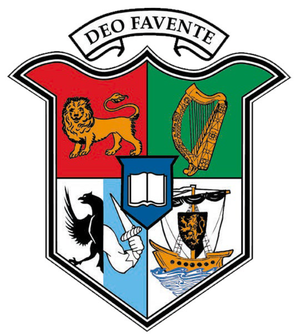
The University of Galway is a public research university located in the city of Galway, Ireland.
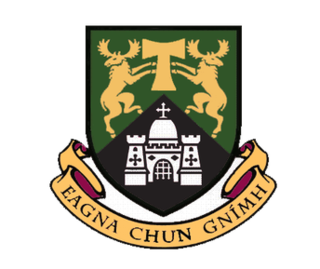
The University of Limerick (UL) is a public research university institution in Limerick, Ireland. Founded in 1972 as the National Institute for Higher Education, Limerick, it became a university in September 1989 in accordance with the University of Limerick Act 1989. It was the first university established since Irish independence in 1922, followed by the establishment of Dublin City University.
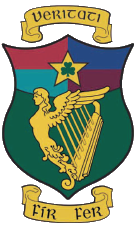
The National University of Ireland (NUI) is a federal university system of constituent universities and recognised colleges set up under the Irish Universities Act 1908, and significantly amended by the Universities Act, 1997.

The National University of Ireland, Maynooth, commonly known as Maynooth University (MU), is a constituent university of the National University of Ireland in Maynooth, County Kildare, Ireland. It was Ireland's youngest university until Technological University Dublin was established in 2019, having been founded by the Universities Act, 1997, from the secular faculties of the now separate St Patrick's College, Maynooth, which was founded in 1795. Maynooth is also the only university town in Ireland, all other universities being based within cities.
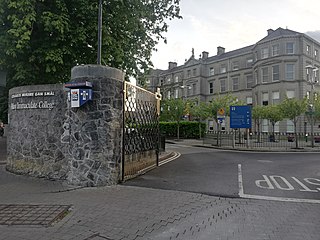
Mary Immaculate College, also known as MIC and Mary I, is a College of Education and Liberal Arts. Founded in 1898, the university level College of Education and the Liberal Arts is academically linked with the University of Limerick. The college now has a student population of over 5,000 enrolled in undergraduate programmes and a range of postgraduate programmes at Diploma, MA and PhD level. The college has a student retention rate of 95% - one of the highest in Ireland.

Third-level education in the Republic of Ireland includes all education after second-level, encompassing higher education in universities and colleges and further education on Post Leaving Certificate (PLC) and other courses.
Gerard A. Hayes-McCoy (1911–1975) was an Irish historian regarded as one of the leading Irish historians of his generation.
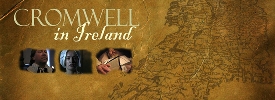
Cromwell in Ireland is a two-part RTÉ docudrama broadcast in September 2008. It is produced by Irish television production company Tile Films and is described as an examination of "that great nemesis of Irish history: Oliver Cromwell". The series stars Owen Roe as Oliver Cromwell, Declan Conlon as Hugh Dubh O'Neill and Catherine Walker as Elizabeth Price. The show's airing coincided with the 350th anniversary of Cromwell's death on 3 September 1658 and began on Tuesday 9 September at 22:15 on RTÉ One. It was broadcast on the History Channel in November.
Ruth Dudley Edwards is an Irish Unionist historian and writer, with published work in the fields of history, biography and crime fiction, and a number of awards won. Born in Dublin, Ireland, she has lived in England since 1965, and describes herself as British-Irish. Her revisionist approach to Irish history and her views have sometimes generated controversy or ridicule. She has been a columnist with the Irish Sunday Independent, the Daily Telegraph and Sunday Telegraph, and The News Letter.
Robert Walter Dudley Edwards was an Irish historian.
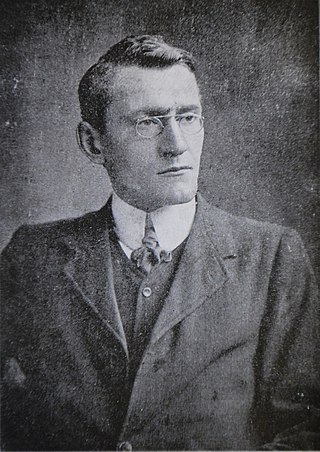
Richard Francis Hayes was an Irish politician, historian and medical doctor. He was a volunteer and fought in the Easter Rising in 1916 and was involved in the Garristown and Ashbourne fighting.

Richard Robert Madden was an Irish doctor, writer, abolitionist and historian of the United Irishmen. Madden took an active role in trying to impose anti-slavery rules in Jamaica on behalf of the British government.
Nicholas Patrick Canny is an Irish historian and academic specializing in early modern Irish history. He has been a lecturer in Irish history at the University of Galway since 1972 and professor there from 1979 to 2011. He is Emeritus Professor of History, University of Galway.

Guy Beiner is an Israeli-born historian of the late-modern period with particular expertise in Irish history.
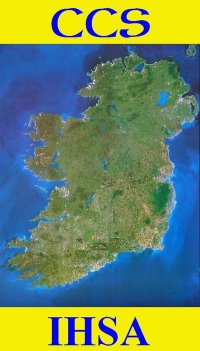
IHSA is an academic organisation which promotes the study of history in Ireland. The organisation was founded in 1950 by representatives from the main universities of Ireland in Dublin. The association organises an annual conference in Ireland on a rotating basis between the main third level institutions offering history courses and research facilities. Its current Reachtaire (Chair) is Dr Sarah-Anne Buckley.
The George L. Mosse Prize is a history book prize awarded annually by the American Historical Association for "an outstanding major work of extraordinary scholarly distinction, creativity, and originality in the intellectual and cultural history of Europe since 1500".

Margaret Ó hÓgartaigh was an Irish historian and author.

Margaret Mary Heavey was a polyglot and classics scholar. She taught in the Classics department at University College Galway from 1931 to 1980, and worked primarily in Irish, translating from Greek and Latin along with writing original works.
The Wayland D. Hand Prize is an award given by the History and Folklore section of the American Folklore Society (AFS) for the best book combining historical and folkloristic methods and materials. The biennial prize honors the eminent folklorist Wayland D. Hand (1907-1986), a former president of the American Folklore Society (1955-1967) who in his teaching and scholarship encouraged historical methodology in folklore research.
References
- ↑ "About NUI". National University of Ireland.
- ↑ "NUI Publication Prizes & Grants: Irish Historical Research Prize". National University of Ireland.
- ↑ "Irish Historical Research Prize". History Ireland. 5 (3): 10. Autumn 1997.
- ↑ "Galway historian gets €3,000 prize for book". Galway City Tribune. 24 October 2003.
- ↑ "Canny study takes NUI prize". Irish Times. 8 November 2003.
- ↑ "Mapping our colonial history". Irish Times. 17 November 2007.
- ↑ "University Prizes". Irish Press. 28 January 1978.
- ↑ "Appointed by N.U.I.". Irish Independent. 28 January 1978.
- ↑ Clarke, Aidan. "Robert Dudley Edwards". Irish Historical Studies. 26 (102): 121–127. doi: 10.1017/S0021121400009615 . S2CID 163875758.
- ↑ "The Canny approach welcome". Irish Times. 24 February 2009.
- ↑ "Research Prize". Limerick Leader. 8 September 1990.
- ↑ "NUI Publication Prizes & Grants: NUI Publication Prize in Irish History". National University of Ireland.
- ↑ Beiner, Guy (2018). Forgetful Remembrance: Social Forgetting and Vernacular Historiography of a Rebellion in Ulster. Oxford University Press. ISBN 9780198749356.